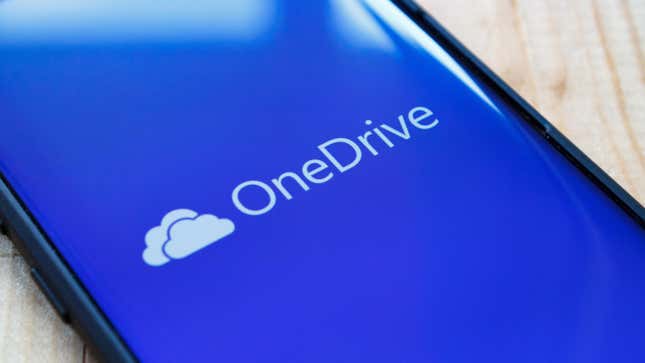
Hell hath no fury like a customer scorned, and Microsoft is now learning that. After the tech company recently imposed storage limits for photos in a user’s OneDrive account, Microsoft has now reversed course after receiving a barrage of backlash.
In August, Microsoft announced that photos in a user’s OneDrive Gallery and in each of their saved photo albums would count separately toward the company’s cloud-based limit of five gigabytes, according to Neowin. The update was expected to roll out on October 16, which would force some users to encounter storage ceilings as the extra data was added to their OneDrive, preventing additional files from syncing. Customers were surprised by the abrupt policy change, so surprised in fact that the company caved to user backlash and recently announced that the change was no longer on the table.
Advertisement
“On August 31, 2023, we began to communicate an upcoming update to our cloud storage infrastructure that would result in a change in how OneDrive photos and photo albums data is counted against your overall cloud storage quota,” Microsoft said in an email to customers, which has also been posted to the company’s Support page. “This change was scheduled to start rolling out on October 16, 2023. Based on the feedback we received, we have adjusted our approach, we will no longer roll out this update.”
Advertisement
Microsoft did not immediately return Gizmodo’s request for comment on the decision.
Advertisement
The company has been clamping down on its storage offerings in recent months, beginning with the free version of Outlook. Microsoft changed an Outlook policy on February 1 that forced attachments on the email service to count toward the five-gigabyte OneDrive limit. For users, that meant that if they reached the five-gigabyte limit on OneDrive, they were no longer be able to send or receive emails on Outlook until they reduced the amount of files and attachments they had saved.
Microsoft is not the only company to recently reverse course after customer backlash. Video game engine Unity unveiled a new pricing model called Runtime Fee that would charge developers a flat rate any time a user installs one of their games, regardless of whether or not that game is sold according to The Verge. The decision sparked a massive outcry from the game developer community, leading Unity to sorta-kinda walk back the new guidelines. The buck didn’t stop there, however, as news broke that Unity executives had sold some of their stock in the company ahead of the announcement, likely anticipating the backlash. Unity eventually tweeted out an apology a few days after announcing the new scheme, thanking the devs for the “honest and critical feedback” before unveiling a revised Runtime Fee.
Services Marketplace – Listings, Bookings & Reviews